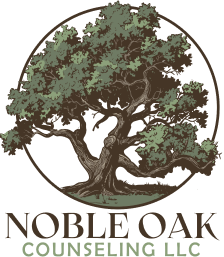Depression is a common mental health condition that can deeply impact every area of life, from relationships to work, health, and general outlook. However, depression is also a highly treatable condition, and many people find relief through professional support and treatment. In this article, we’ll explore how to recognize the signs of depression, understand what causes it, and know when it’s time to seek help.
If you or a loved one is dealing with depression, know that support is available, and recovery is possible.
What Is Depression?
Depression, or Major Depressive Disorder (MDD), is more than feeling sad or going through a rough patch. It’s a medical condition marked by persistent low mood and lack of interest or pleasure in most daily activities. People with depression may also experience a range of physical, cognitive, and emotional symptoms that make it hard to function in daily life.
While everyone feels down from time to time, depression is characterized by its duration and intensity. When feelings of sadness, emptiness, or hopelessness last for more than two weeks and start to interfere with daily activities, it may be time to consider professional support.
Common Symptoms of Depression
Depression manifests in different ways for different people, but it often includes some combination of physical, emotional, and cognitive symptoms.
- Emotional Symptoms
- Persistent sadness, emptiness, or hopelessness
- Feelings of guilt, worthlessness, or helplessness
- Loss of interest in hobbies, work, or social activities
- Difficulty enjoying activities that once brought pleasure
- Cognitive Symptoms
- Difficulty concentrating, making decisions, or remembering details
- Pessimism or a sense that nothing will ever get better
- Thoughts of death, dying, or suicide (if you or someone you know is experiencing these thoughts, please seek help immediately by contacting a mental health professional or crisis hotlineby dialing 988 on any phone)
- Physical Symptoms
- Low energy or chronic fatigue
- Changes in appetite or weight (either loss or gain)
- Sleep disturbances, including insomnia or oversleeping
- Physical aches and pains without an identifiable cause
- Restlessness or feeling “slowed down” in movements or speech
Recognizing these symptoms early is essential in managing and treating depression. Many people with depression try to “push through” or hope it will improve on its own, but timely treatment can prevent symptoms from worsening.
Types of Depression
While Major Depressive Disorder is the most common, depression can present in several specific forms, each with unique symptoms and patterns:
- Persistent Depressive Disorder (PDD): Also known as dysthymia, PDD is a chronic, low-level depression lasting two years or more. While symptoms may be less intense than MDD, they persist over a longer period, impacting one’s quality of life.
- Seasonal Affective Disorder (SAD): SAD is a type of depression that typically occurs during the winter months when sunlight is scarce. Symptoms often lift in spring and summer but can return annually, requiring specific treatment approaches.
- Postpartum Depression: This type affects new mothers and can arise due to hormonal changes, the physical and emotional demands of childbirth, or other risk factors. Symptoms may appear within a few weeks after birth or even later.
- Bipolar Disorder: Bipolar disorder includes episodes of depression interspersed with episodes of mania or hypomania (periods of high energy, euphoria, or irritability). It’s essential to treat both poles of this disorder to manage it effectively.
- Psychotic Depression: Severe depression may include hallucinations or delusions. Psychotic depression can be frightening and often requires immediate medical intervention.
Understanding the Causes of Depression
Depression doesn’t have a single cause; rather, it’s a result of various factors that may combine in different ways for each individual. Here are some common contributing factors:
- Biological Factors: Brain chemistry, hormonal imbalances, and family history play a role in depression. If a close family member has experienced depression, there is a higher chance that one might experience it as well.
- Environmental Factors: Stressful or traumatic life events—such as losing a loved one, undergoing financial strain, or experiencing relationship difficulties—can trigger depressive episodes.
- Personality Traits: Certain personality traits, such as high sensitivity, perfectionism, or a tendency to self-criticize, may increase the likelihood of developing depression.
- Substance Use: Alcohol and drug use can increase vulnerability to depression. For some, substance use may be a coping mechanism for underlying depression, creating a cycle of worsening symptoms.
- Medical Conditions: Certain chronic illnesses (like diabetes or heart disease) and medications can increase the risk of depression.
Treatment Options for Depression
Treating depression is often a combination of approaches that address both the mind and body. With the right support, many people can significantly improve their symptoms and live fulfilling lives. Here are some effective treatments for depression:
- Therapy and Counseling
Therapy provides a supportive space for individuals to explore their thoughts, emotions, and behaviors, helping to identify and change patterns that may contribute to depression.
- Cognitive Behavioral Therapy (CBT): CBT is one of the most effective treatments for depression. It focuses on identifying negative thought patterns and replacing them with healthier, more constructive ways of thinking.
- Mindfulness-Based Cognitive Therapy (MBCT): MBCT combines mindfulness practices with CBT techniques, helping individuals stay present in the moment and reduce rumination, a common feature of depression.
- Interpersonal Therapy (IPT): IPT focuses on improving relationships and social support, helping people navigate interpersonal issues that may contribute to depression.
- Psychodynamic Therapy: This therapy helps people explore unresolved conflicts and emotional patterns rooted in past experiences, which can impact current mental health.
- Medication
Medication can be highly effective for managing depression symptoms, particularly when combined with therapy. Common classes of antidepressants include:
- Selective Serotonin Reuptake Inhibitors (SSRIs): SSRIs are often the first line of treatment for depression, with medications like sertraline and fluoxetine.
- Serotonin and Norepinephrine Reuptake Inhibitors (SNRIs): These medications, like venlafaxine, impact both serotonin and norepinephrine, helping regulate mood.
- Atypical Antidepressants: Medications like bupropion work differently from SSRIs and SNRIs, and are used based on specific symptoms.
Medication should be prescribed by a healthcare provider, who can monitor side effects and effectiveness. It’s essential to follow medication guidance carefully, as adjusting or stopping medication without support can lead to withdrawal symptoms or worsened depression.
- Lifestyle Changes
Lifestyle adjustments can support mental health and may complement therapy and medication:
- Regular Exercise: Physical activity boosts mood by releasing endorphins. Even a daily walk can significantly impact mental well-being.
- Healthy Diet: Eating balanced meals with adequate nutrients supports brain health. Minimizing processed foods, sugar, and caffeine may also help.
- Sleep Hygiene: Quality sleep is essential for mental health. Establishing a regular bedtime routine and reducing screen time can improve sleep quality.
- Mindfulness and Relaxation Techniques: Mindfulness, meditation, and yoga can help manage stress and reduce symptoms of depression.
Seeking Help for Depression
If you’re experiencing depression or recognize these symptoms in someone you care about, reaching out is a critical step toward recovery. You don’t have to face depression alone—support from professionals, loved ones, and community resources can make a substantial difference.
Noble Oak Counseling offers a compassionate, judgment-free space where you can explore the roots of your depression and work toward meaningful change. As a licensed therapist with years of experience, I believe in each person’s unique journey and am here to support you with practical, trauma-informed techniques tailored to your needs. If you’re ready to take the first step, schedule a consultation with Noble Oak Counseling, and let’s work together on building a brighter path forward.
Final Thoughts Depression is a challenging condition, but with the right tools, support, and treatment, you can regain control and find joy and purpose again. Remember, reaching out for help isn’t a sign of weakness but a courageous step toward healing. Don’t let depression define your story. Reach out today to explore how counseling can support your journey toward recovery.


